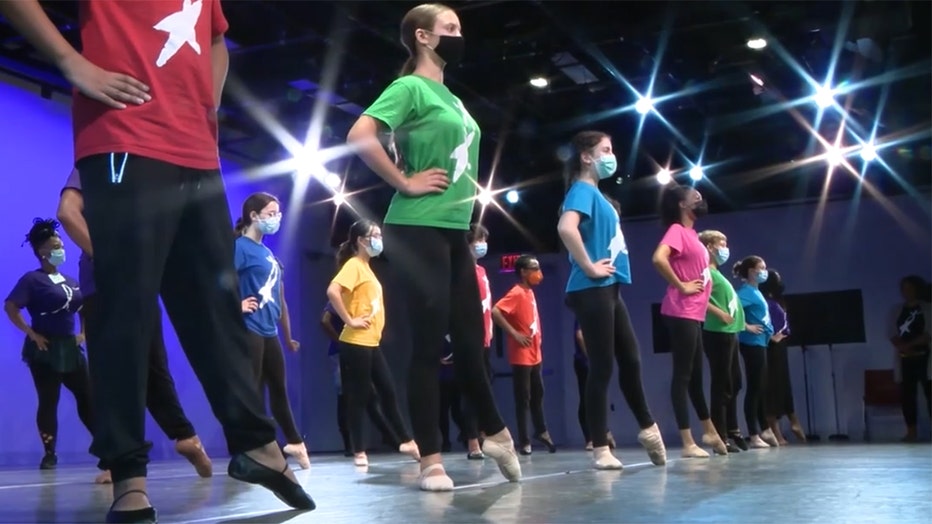Misty Copeland's new foundation focuses on diversity, equity in dance

Misty Copeland Foundation launches
Pioneering ballerina Misty Copeland has launched her own foundation. The first initiative of The Misty Copeland Foundation is called Be Bold.
NEW YORK - Misty Copeland announced the launch of her foundation last week at the National Dance Institute in Harlem.
"The goal of the Misty Copeland Foundation is to bring greater diversity, equity, and inclusion to dance — but especially ballet," said Copeland, who is the foundation's president and founder.
The first initiative is the BE BOLD program, a free 12-week afterschool program for children ages 8 to 10 at two Boys and Girls Clubs in the Bronx. (BE BOLD stands for Ballet Explorations/Ballet Offers Leadership Development.)
"It's really an opportunity to give young people in underrepresented and under-resourced communities an opportunity to experience the joy of ballet — making it affordable and accessible, which you don't often get with such an elite art form," Copeland said.
Copeland knows all too well the power of these opportunities. She was first introduced to ballet through a free class at a Boys and Girls Club near where she grew up in San Pedro, California, when she was 13.
"It was there where I was introduced to this world and I had no idea that I was going to have so many obstacles along the way," Copeland said. "I was the only Black woman at American Ballet Theatre for the first decade of my career."

In 2015, Copeland became the first Black woman to be promoted to principal dancer in the company's 75-year history.
"My journey has not been easy — to be a part of a world where it's structured in a way to exclude dancers of color, exclude people who don't fit into a mold in terms of their body types — and I want to change that stereotype," Copeland said. "I want to open up ballet and make it more accessible because of what I experienced and what so many Black and brown dancers have experienced throughout history — not feeling that this is a world that they can thrive in or feel supported."
The 40-year-old added that she has wanted to do this her whole career but a recent movement served as a catalyst.
"It's been a part of my journey —giving back to the Black community — especially, being a role model and a mentor to so many," Copeland said. "But I think it was in that time within the pandemic, in Black Lives Matter, that made me feel like, 'What am I waiting for?'"
And how does someone with a career like Copeland's measure success?
"We've gotten to this point of bringing in teaching artists who I don't think have ever really felt supported by the ballet community in a way that they feel that they can use their voice and their experiences to help the next generation," Copeland said. "So I think that just by getting to this point has been a success but seeing dancers come out of this feeling like ballet is for me and I'm having fun. That's what I want. That's success to me."
The program is set to start in early October.

